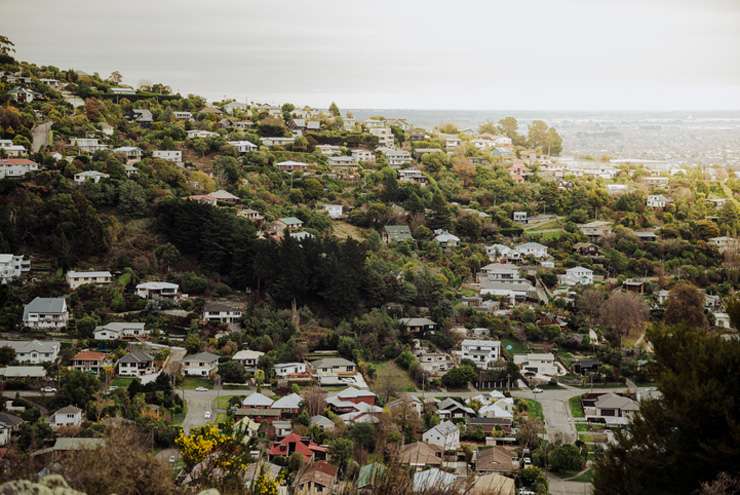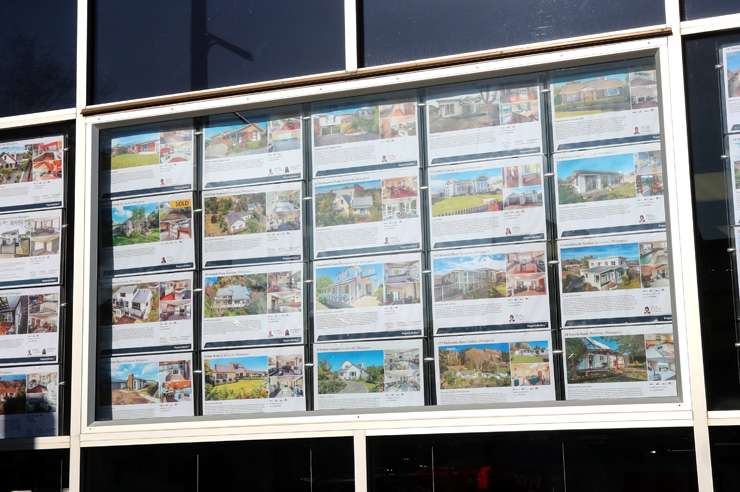The OneRoof-Valocity house price index shows the vast majority of suburbs around the country have soared in sales and prices post-Covid - with some notable exceptions.
In the regions, the biggest risers are in Gisborne, Whanganui, and Christchurch, while some of the biggest losers are Arrowtown and Wellington central.
READ MORE: Find out if your suburb is rising or falling
James Wilson, director of valuation at OneRoof's data partner Valocity, says first home buyers and investors are driving activity in some of the big risers, such as Mangapapa in Gisborne and St Johns Hill in Whanganui, along with Addington and Cashmore in Christchurch.
Start your property search
In the post-Covid world of real estate, which came to a grinding halt during the lockdown, levers were pulled by the Reserve Bank to drop the OCR rate and remove some of the LVR restrictions.
Dive back in
“That allowed some of the first home buyer group to really dive back in who were relatively quickly followed by investors, especially in locations like Gisborne which has always had a really strong yield so a good rental market provides a good return for investors.”
Whanganui has performed strongly for some years, with Wilson describing the town, which has just taken out New Zealand’s most beautiful small city title, as the “jewel in the crown” of the North Island.
“Again, it’s the affordability. The entry level price bracket is relatively affordable compared to other North Island locations like Hamilton or Cambridge.”
In the Christchurch suburbs of Addington and Cashmore the post-Covid market has risen on the back of earthquake-damaged properties either being taken out of the market or repaired, resulting in more affordable properties in comparison to others in the wider Canterbury area.
“Investors are flocking back into the ex-Christchurch central locations to chase that good yield at quite an affordable price.
“Their mindset has become ‘the properties are now rectified if they had any damage and, therefore, they’re now relatively stable, good investments’. There’s been a real surge of investors, and first home buyers.”

Christchurch property values have jumped after a long period of little to no growth. Photo / Getty Images
Other areas with strong post-Covid activity, including Taumaranui, Palmerston North and Dannevirke, show a similar theme of first home buyer and investor competition.
Where some of the activity is down, such as in central Wellington, Wilson points to caution around the central apartment markets.
“That’s really investors sitting back going ‘we’re not too sure what’s going to happen to that market.’”
In Mangapapa, in Gisborne, Ray White’s Diane Ritchie says prices are just going up and up – and up.
“There are some really nice parts to Mangapapa like Hillview Terrace and they’re selling for really big money.”
She recently sold a section for $400,000 which now seemed a cheap buy. The section settled about a month ago but if it came back to the market Ritchie is confident she could probably get another $100,000 for the vendor.
While there are run down properties in Gisborne, because people can’t afford to maintain them, there is no doubt people are flocking to the east coast town.
“What’s happened in Gisborne is we’ve been undiscovered for many years, we’re isolated, but we’ve got the most amazing beaches here right up around the coast. Beach properties are selling for – well, there’s hardly any to sell – but they’re selling for huge money.”
‘Not cheap anymore’
She thinks the Covid-related change to how people work is driving some of the market, with people able to remote work from home which opens the door to more people coming in.
“I had a guy living across the road from me at Wainui who would just fly in and out. He lived in Coatesville, in Auckland, and said it would take him longer to drive from there into Auckland City than it would jumping on the plane and getting the shuttle bus.”
The investment market has been huge in Gisborne because of the high rents and low property values, but that has changed, Ritchie says.

Whanganui’s property market was hot before Covid, and has been hot in the months after. Photo / NZME
“They’re not cheap anymore. Something that sold for $250,000 last year, you’d be paying double that. We’ve had a 44 per cent rise, the hugest rise in New Zealand in a short time.”
In Whanganui, St Johns Hill has seen 16.9 per cent rise in activity post-lockdown, with John Bartley from Bayleys saying the suburb is a brilliant location.
“You’ve got Virginia Lake there, it’s close to town and there’s good schooling as well.”
Stock is low in Whanganui but demand is high with even more people from out of town looking to move there for the cheaper pricing and the lifestyle.
“We’re seeing multiple offers on pretty much every property. I don’t know whether it’s a reflection of people being sick of the city and coming to the regions, or job losses, or the ability to work from home. I think it’s a range.”
Lean couple of months
The influx of people has been positive for the town but with prices skyrocketing it’s getting harder for first home buyers to get in, and, like everywhere, stock is low in part because people are put off moving in case they can’t find something to buy.
“It’s all well and good you’ve got that higher value of your property but you’ve also got to have somewhere to move to. “
Where there are winners, there are losers and Arrowtown, in the Queenstown-Lakes District, has seen post-Covid activity drop by -12.9 per cent.
Richard Newman, from Ray White Arrowtown, says the demand is there - but the stock isn’t.
“Our sales are about 30 per cent down from last year but the average sales price is up by about 15 per cent.
“There’s just no stock but there’s heaps of demand. We’d have 15 to 20 buyers, at least, for properties between $1m to $1.6m but we just can’t find stock for them.
“People don’t want to shift because they don’t know where to shift to, that’s our problem.”
There have been some sales sight unseen off the internet, which is common since the lockdown around the Whakatipu, but Arrowtown is constrained by three golf courses and while there is plenty of land the potential to develop is stifled by the Resource Management Act.
Newman says the agency is busy, however, and had a good October but “we’ve got nothing to sell now. I think we’ve got five listings but unless we get some more stock it’s going to be a lean couple of months.”
















































































